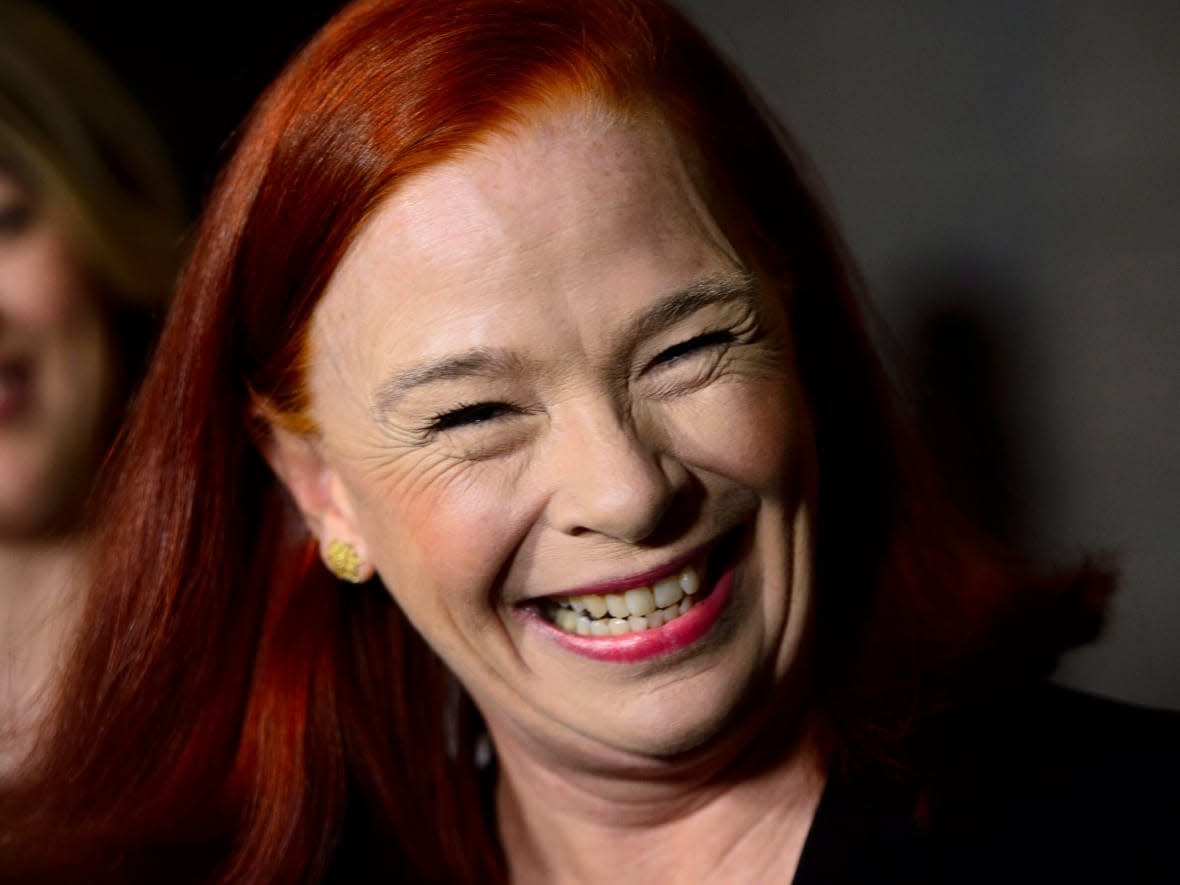Catherine Tait staying on to lead CBC/Radio Canada — but with a shorter second mandate

Catherine Tait, president and CEO of CBC/Radio-Canada, will keep her job for the next 18 months as the government begins the process of picking a permanent replacement to lead the public broadcaster.
Tait, who has led the service through a tumultuous time, will stay on until January 2025. Tait's first five-year term officially ends in July.
The shorter second mandate gives the government "a bridge to get us through the independent open process we need to run, just like 2017," a senior government source told CBC News, referring to the independent advisory committee that chose Tait.
The previous committee was chaired by former television journalist Tom Clark and eight other non-partisan people from across the country — a process intended to neutralize claims that the government exerts too much control over the CBC's governance. The government will soon initiate a similar process to pick her successor.
Le Devoir was first to report that Tait has been renewed.
In a statement, Tait said she wants to spend her remaining time at the broadcaster focused on addressing what she calls "the urgent issues of polarization and distrust" which are "undermining democratic and open societies."
"It's a critical issue that all Western democracies are grappling with. I believe Canada's public broadcaster has a unique role to play to address disinformation, build trust in verified and trusted news, and, most importantly, to foster Canadian conversations in English, French and Indigenous languages," Tait said.
Tait's anticipated six-and-a-half year stint is shorter than those enjoyed by some past presidents.
Her immediate predecessor, Hubert Lacroix, a lawyer, businessman and former basketball colour commentator, served for 10 years. Before Lacroix, Robert Rabinovitch led the company between 1999 and 2007.
The next president and CEO will lead the broadcaster at a time of profound change in the media landscape.
Conventional TV and radio platforms are grappling with stagnant or declining audiences while fledgling streaming services, like the CBC's Gem and Listen, find their footing.
"We'll kick off 2025 with an exciting new leader that can carry it forward for the long term," the source said.
Tait, an industry veteran with a long list of credentials, has championed public broadcasting in the five years she's been on the job so far.
In a statement announcing the extension, Heritage Minister Pablo Rodriguez praised Tait for her efforts to combat online and physical threats of harm against journalists.
Under Tait's direction, the CBC has also deployed journalists in underserved communities like Grand Prairie and Lethbridge in Alberta, Nanaimo and Cranbrook in B.C., and Kingston, Ont., Rodriguez said.
"CBC/Radio-Canada plays an essential role in our country's democracy and culture. Given the scope of change with the implementation of the Online Streaming Act and the proposed Online News Act, the continuity in her role at the helm of the public broadcaster is key during this time," the minister said, referring to legislation designed to revamp broadcasting regulations and force tech giants to pay for Canadian news content.
Tait has also been a source of controversy.
Tait has had a tense relationship with Conservative Leader Pierre Poilievre, who has vowed to "defund the CBC" if he becomes prime minister.
Citing documents obtained under the access-to-information law, La Presse reported last month that Tait requested a meeting with Poilievre shortly after he was elected leader. Poilievre declined the invitation.
"Since during your leadership campaign you publicly pledged to 'defund CBC,' I would have hoped that spending time understanding the organization might have been helpful," Tait said in a letter dated Nov. 29, 2022.
Tait later told The Globe and Mail in February that Poilievre is fuelling "CBC bashing."
The party in turn has claimed in its fundraising appeals that CBC is a "propaganda arm" of the Liberal government — something Tait has vigorously denied.
CBC and the French-language service, Radio-Canada, operate independently — and at arm's length — from the government.


